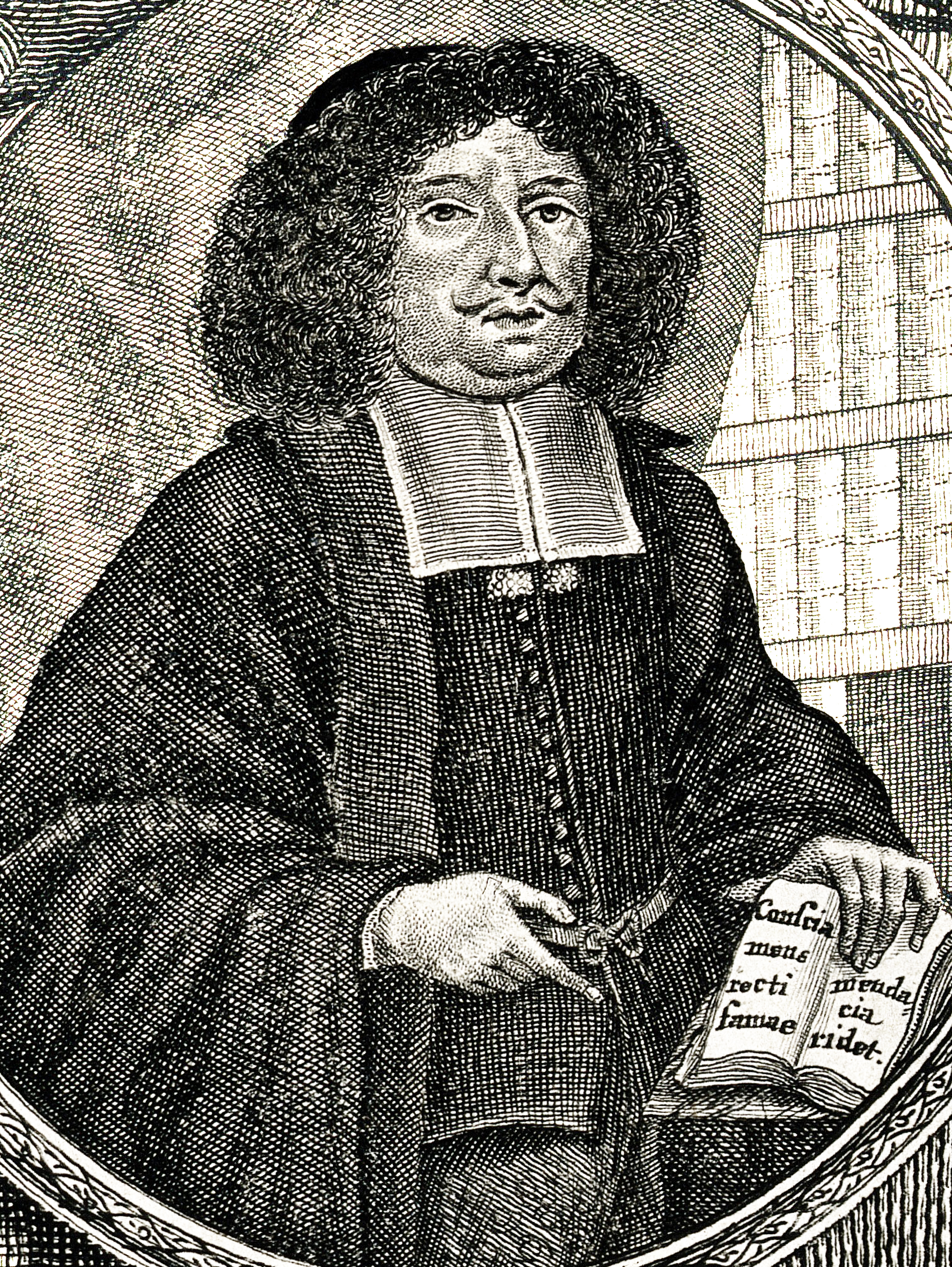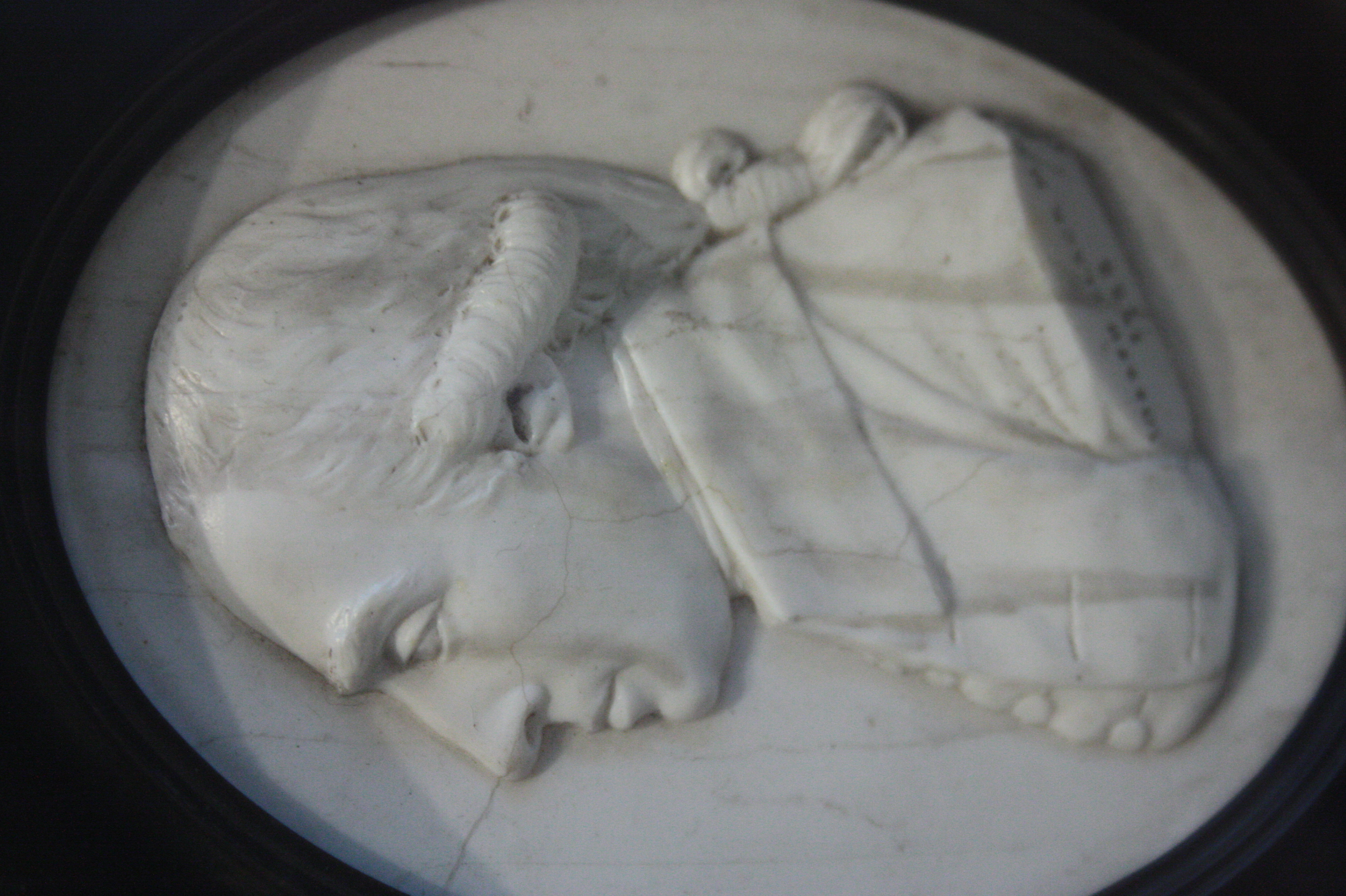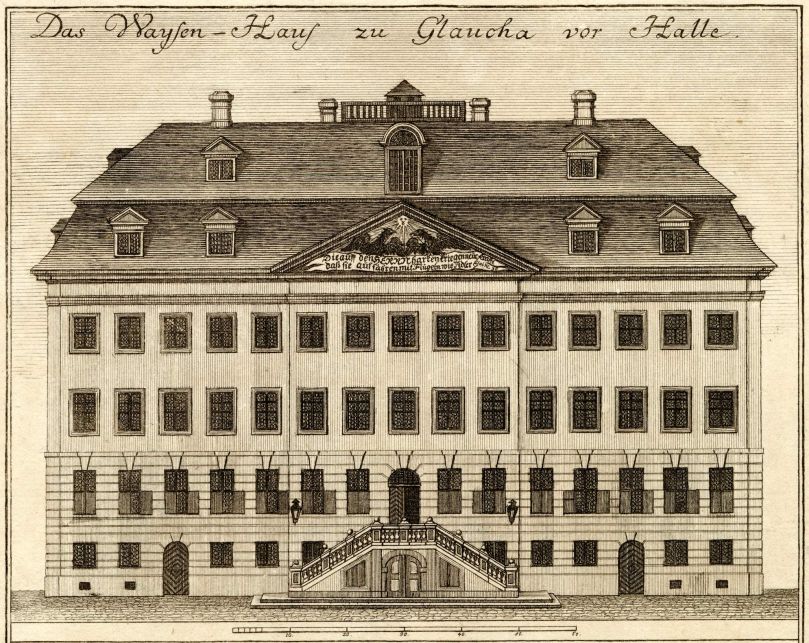|
Johann Friedrich Meyer
Johann Friedrich Meyer (24 October 1705 – 2 November 1765) was a Thuringia, Thuringian chemist and pharmacist who ardently supported the phlogiston theory even after the work of Joseph Black was published. He contributed greatly to debates in the chemistry of the time although he was wrong, often reviving obsolete ideas from alchemy. Biography Meyer was born in Osnabrück, to physician Johann Andreas (1670–1714) and Sophia Margaretha née Gottfried (1683–1742). He wished to study theology but was forced to work at the Hirsch pharmacy in Bramsche belonging to his maternal family. After apprenticing there he went to Leipzig and after periods of unemployment, joined a pharmacy in Nordhausen in 1727. He worked for a while in the pharmacy of the Francke Foundations at Halle and return to his family business in Osnabrück, inheriting its ownership in 1737. He worked there until his death. Meyer married Anna Sara née Krochmann in 1738 and she died childless in 1759. Scientific ... [...More Info...] [...Related Items...] OR: [Wikipedia] [Google] [Baidu] |
Thuringia
Thuringia (; german: Thüringen ), officially the Free State of Thuringia ( ), is a state of central Germany, covering , the sixth smallest of the sixteen German states. It has a population of about 2.1 million. Erfurt is the capital and largest city. Other cities are Jena, Gera and Weimar. Thuringia is bordered by Bavaria, Hesse, Lower Saxony, Saxony-Anhalt, and Saxony. It has been known as "the green heart of Germany" () from the late 19th century due to its broad, dense forest. Most of Thuringia is in the Saale drainage basin, a left-bank tributary of the Elbe. Thuringia is home to the Rennsteig, Germany's best-known hiking trail. Its winter resort of Oberhof makes it a well-equipped winter sports destination – half of Germany's 136 Winter Olympic gold medals had been won by Thuringian athletes as of 2014. Thuringia was favoured by or was the birthplace of three key intellectuals and leaders in the arts: Johann Sebastian Bach, Johann Wolfgang von Goethe, and Fried ... [...More Info...] [...Related Items...] OR: [Wikipedia] [Google] [Baidu] |
Phlogiston Theory
The phlogiston theory is a superseded scientific theory that postulated the existence of a fire-like element called phlogiston () contained within combustible bodies and released during combustion. The name comes from the Ancient Greek (''burning up''), from (''flame''). The idea was first proposed in 1667 by Johann Joachim Becher and later put together more formally by Georg Ernst Stahl. Phlogiston theory attempted to explain chemical processes such as combustion and rusting, now collectively known as oxidation. It was challenged by the concomitant weight increase, and was abandoned before the end of the 18th century following experiments by Antoine Lavoisier and others. Phlogiston theory led to experiments which ultimately concluded with the discovery of oxygen. Theory Phlogiston theory states that ''phlogisticated'' substances contain phlogiston and that they ''dephlogisticate'' when burned, releasing stored phlogiston which is absorbed by the air. Growing plants then absor ... [...More Info...] [...Related Items...] OR: [Wikipedia] [Google] [Baidu] |
Joseph Black
Joseph Black (16 April 1728 – 6 December 1799) was a Scottish physicist and chemist, known for his discoveries of magnesium, latent heat, specific heat, and carbon dioxide. He was Professor of Anatomy and Chemistry at the University of Glasgow for 10 years from 1756, and then Professor of Medicine and Chemistry at the University of Edinburgh from 1766, teaching and lecturing there for more than 30 years. The chemistry buildings at both the University of Edinburgh and the University of Glasgow are named after Black. Early life and education Black was born "on the banks of the river Garonne" in Bordeaux, France, the sixth of the 12 children of Margaret Gordon (''d''. 1747) and John Black. His mother was from an Aberdeenshire family that had connections with the wine business and his father was from Belfast, Ireland and worked as a factor in the wine trade. He was educated at home until the age of 12, after which he attended grammar school in Belfast. In 1746 at the age of ... [...More Info...] [...Related Items...] OR: [Wikipedia] [Google] [Baidu] |
Osnabrück
Osnabrück (; wep, Ossenbrügge; archaic ''Osnaburg'') is a city in the German state of Lower Saxony. It is situated on the river Hase in a valley penned between the Wiehen Hills and the northern tip of the Teutoburg Forest. With a population of 168,145 Osnabrück is one of the four largest cities in Lower Saxony. The city is the centrepoint of the Osnabrück Land region as well as the District of Osnabrück.Osnabrück: Lebendiges Zentrum im Osnabrücker Land www.osnabruecker-land.de The founding of Osnabrück was linked to its positioning on important European trading routes. |
Bramsche
Bramsche is a town in the district of Osnabrück, Lower Saxony, Germany. It is about north of Osnabrück, at . Population is 30,952 (2018). Subdivisions In 1971/72 12 previously independent municipalities were included into the town. *Achmer *Balkum *Epe and Malgarten *Engter *Evinghausen *Hesepe *Kalkriese – site of the Battle of the Teutoburg Forest *Lappenstuhl *Pente *Schleptrup *Sögeln *Ueffeln Mayors The mayor of Bramsche is Heiner Pahlmann (SPD), re-elected in 2021. He was first elected in May 2014 with 63.0% of the votes. His predecessor Liesel Höltermann (SPD) did not run for mayor any more. Twin towns – sister cities Bramsche is twinned with: * Biskupiec, Poland * Harfleur, France * Ra'anana, Israel * Todmorden, England, United Kingdom Notable people * Peter Urban (born 1948), radio and television moderator *Marieluise Beck (born 1952), politician (Alliance 90/The Greens), Member of Bundestag since 1983 *Filiz Polat (born 1978), politician (Alliance 90/The ... [...More Info...] [...Related Items...] OR: [Wikipedia] [Google] [Baidu] |
Francke Foundations
The Francke Foundations (Franckesche Stiftungen), also known as Glauchasche Anstalten were founded in 1695 in Halle, Germany as a Christian, social and educational work by August Hermann Francke The Francke Foundations are today a non-profit educational organization housed in a complex of historic buildings. The Francke Foundations includes three kindergartens, a children’s creativity centre, four schools, a House of Generations, a youth workshop, a bible centre, traditional commercial enterprises, archives, libraries, museums, and university and non-university research facilities. More than 4,000 people learn, teach, work and live in the Francke Foundations. The Francke Foundations have been on the German proposal list as a UNESCO World Heritage Site since 1999. History 17th century A pastor and professor in Halle, Francke was strongly interested in education reform. His goals were to establish a school for poor and orphaned children and create a set of religiously mot ... [...More Info...] [...Related Items...] OR: [Wikipedia] [Google] [Baidu] |
Johann Christian Wiegleb
Johann Christian Wiegleb (December 21, 1732 – January 16, 1800) was a notable German apothecary and early innovator of chemistry as a science. Life Wiegleb, the son of a lawyer, was schooled in Langensalza.Wolfgang-Hagen Heim, Holm-Dietmar Schwarz: ''Deutsche Apotheker-Biographie.'' Wissenschaftliche Verlagsgesellschaft, Stuttgart 1978, (Veröffentlichungen der Internationalen Gesellschaft für Geschichte der Pharmazie e.V. ; N.F., Bd. 46, Bd. II, M-Z), , S. 743. From 1748 to 1754 he served as an apprentice-apothecary in Dresden. Subsequently, from 1754 to 1755 he worked as an assistant in an apothecary in Quedlinburg. In 1759 he established his own apothecary in his hometown of Langensalza.Genealogy Database Entry by Vera V. Mainz and Gregory S. Girolami 1998 He directed that apothecary until 1796. Further ... [...More Info...] [...Related Items...] OR: [Wikipedia] [Google] [Baidu] |
Karl Wilhelm Pörner
Karl may refer to: People * Karl (given name), including a list of people and characters with the name * Karl der Große, commonly known in English as Charlemagne * Karl Marx, German philosopher and political writer * Karl of Austria, last Austrian Emperor * Karl (footballer) (born 1993), Karl Cachoeira Della Vedova Júnior, Brazilian footballer In myth * Karl (mythology), in Norse mythology, a son of Rig and considered the progenitor of peasants (churl) * ''Karl'', giant in Icelandic myth, associated with Drangey island Vehicles * Opel Karl, a car * ST ''Karl'', Swedish tugboat requisitioned during the Second World War as ST ''Empire Henchman'' Other uses * Karl, Germany, municipality in Rhineland-Palatinate, Germany * '' Karl-Gerät'', AKA Mörser Karl, 600mm German mortar used in the Second World War * KARL project, an open source knowledge management system * Korean Amateur Radio League, a national non-profit organization for amateur radio enthusiasts in South Korea * ... [...More Info...] [...Related Items...] OR: [Wikipedia] [Google] [Baidu] |
Antoine Baumé
Antoine Baumé (26 February 172815 October 1804) was a French chemist. Life He was born at Senlis. He was apprenticed to the chemist Claude Joseph Geoffroy, and in 1752 was admitted a member of the École de Pharmacie, where in the same year he was appointed professor of chemistry. The money he made in a business he carried on in Paris for dealing in chemical products enabled him to retire in 1780 in order to devote himself to applied chemistry, but, ruined in the Revolution, he was obliged to return to a commercial career. He devised many improvements in technical processes, e.g. for bleaching silk, dyeing, gilding, purifying saltpetre, etc., but he is best known as the inventor of the Baumé scale hydrometer or "spindle" which provides scientific measurements for the density of liquids. The scale remains associated with his name but is often improperly spelt "Beaumé". Of the numerous books and papers he wrote the most important is his ''Éléments de pharmacie théorique et ... [...More Info...] [...Related Items...] OR: [Wikipedia] [Google] [Baidu] |
1705 Births
Seventeen or 17 may refer to: *17 (number), the natural number following 16 and preceding 18 * one of the years 17 BC, AD 17, 1917, 2017 Literature Magazines * ''Seventeen'' (American magazine), an American magazine * ''Seventeen'' (Japanese magazine), a Japanese magazine Novels * ''Seventeen'' (Tarkington novel), a 1916 novel by Booth Tarkington *''Seventeen'' (''Sebuntiin''), a 1961 novel by Kenzaburō Ōe * ''Seventeen'' (Serafin novel), a 2004 novel by Shan Serafin Stage and screen Film * ''Seventeen'' (1916 film), an American silent comedy film *''Number Seventeen'', a 1932 film directed by Alfred Hitchcock * ''Seventeen'' (1940 film), an American comedy film *''Eric Soya's '17''' (Danish: ''Sytten''), a 1965 Danish comedy film * ''Seventeen'' (1985 film), a documentary film * ''17 Again'' (film), a 2009 film whose working title was ''17'' * ''Seventeen'' (2019 film), a Spanish drama film Television * ''Seventeen'' (TV drama), a 1994 UK dramatic short starring Christi ... [...More Info...] [...Related Items...] OR: [Wikipedia] [Google] [Baidu] |
1765 Deaths
Events January–March * January 23 – Prince Joseph of Austria marries Princess Maria Josepha of Bavaria in Vienna. * January 29 – One week before his death, Mir Jafar, who had been enthroned as the Nawab of Bengal and ruler of the Bengali people with the support and protection of the British East India Company, abdicates in favor of his 18-year-old son, Najmuddin Ali Khan. * February 8 – **Frederick the Great, the King of Prussia, issues a decree abolishing the historic punishments against unmarried women in Germany for "sex crimes", particularly the ''Hurenstrafen'' (literally "whore shaming") practices of public humiliation. **Isaac Barré, a member of the British House of Commons for Wycombe and a veteran of the French and Indian War in the British American colonies, coins the term "Sons of Liberty" in a rebuttal to Charles Townshend's derisive description of the American colonists during the introduction of the proposed Stamp Act. MP Barré n ... [...More Info...] [...Related Items...] OR: [Wikipedia] [Google] [Baidu] |






